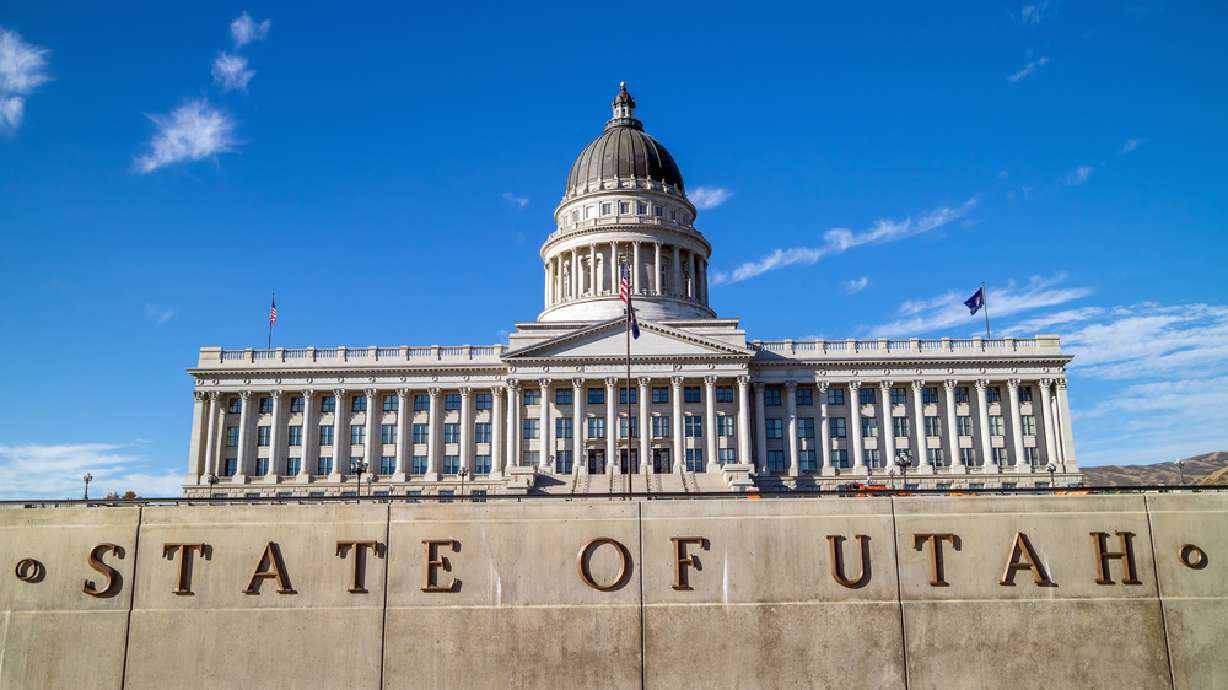Estimated read time: 4-5 minutes
This archived news story is available only for your personal, non-commercial use. Information in the story may be outdated or superseded by additional information. Reading or replaying the story in its archived form does not constitute a republication of the story.
SALT LAKE CITY — Utah lawmakers kicked off the process of slashing as much as $2 billion from the state budget to deal with the economic hit from the COVID-19 pandemic with a four-hour virtual meeting Tuesday detailing a long list of proposed cuts to the health, human services and workforce services departments.
No decisions were made during the first of two meetings for the Social Services Appropriations Subcommittee, scheduled to meet again Friday to vote on proposed cuts of 2%, 5% and 10% in the largest area of the state’s $20 billion state budget, aside from education.
Other appropriations subcommittees are set to meet Wednesday and Thursday but the final recommendations for budget cuts headed to a special session of the Utah Legislature on June 18 and 19 will come from the Executive Appropriations Committee, which asked each subcommittee come up with a range of proposed reductions.
Senate Minority Whip Luz Escamilla, D-Salt Lake City, spoke against going forward, warning social services “is probably not the place where cuts need to happen” during a public health crisis and suggesting the subcommittee co-chairmen consider “standing strong,” given the pandemic.
“This is a pretty unique situation,” Escamilla said, unlike past recessions where social service programs shared in budget cuts. This time, she said that some reductions “would just be detrimental to the entire pandemic issue based on public safety and public health.”
The subcommittee’s co-chairman, Sen. Allen Christensen, R-North Ogden, said the “rather special and unusual” nature of the recession is being taken into consideration “and in all probability, hopefully we’re not even going to touch the 10% much because of that. But we’re going to discuss all of them anyway.”
Another subcommittee member, Senate President Stuart Adams, R-Layton, added that “we all hope we don’t have to get to that 10% number.” But that depends on getting the state’s economy back on track safely to avoid a rebound of the deadly virus, he said.
Related:
“The challenge of that is we are in a pandemic, and we’ve gone from red to orange to yellow and maybe to green, but it’s really important for the public to be, in my opinion, smart yellow or smart green,” he said. “If we don’t do it smartly, that 10% becomes more likely.”
Also, the Senate president said, while lawmakers may have “soft spots” for social services and education spending, which make up some three-quarters of the budget set to start on July 1, “if you don’t touch those two budgets, there’s not a lot left.”
Much of the meeting was devoted to reviewing some 166 budget cuts adding up to more than $110 million in state funds, ranging from canceling planned conferences to eliminating programs, including $98,000 for a homeless outreach team in Salt Lake City’s Rio Grande area and $261,000 to fight opioid abuse in Carbon County.
Medicaid services would be the hardest hit under the worst-case scenario, losing nearly $48 million in state funds. Services for people with disabilities would be reduced by more than $12 million, and mental health and substance abuse programs by more than $10 million.
The challenge of that is we are in a pandemic, and we’ve gone from red to orange to yellow and maybe to green, but it’s really important for the public to be, in my opinion, smart yellow or smart green. If we don’t do it smartly, that 10% becomes more likely.
–Senate President Stuart Adams, R-Layton
Recovery services offices in several locations could be closed with workers left to telecommute. For those Utahns who need to appear in person at the office charged with enforcing child support, that could mean traveling from St. George to Provo.
Rep. Stephen Christiansen, R-West Jordan, said he’d like to see how much more could be saved by workers continuing to telecommute, as most have done throughout the pandemic. He also is seeking to move the average number of workers reporting to a manager to eight, another attempt at cutting costs.
The state is facing an estimated loss in revenue of between $200 million to $600 million in the current budget year, and between $600 million to $1.3 billion less in the following budget year, much of it from a drop in sales and income taxes because of the shut down to stop the spread of the coronavirus.
Concerns were raised that the budget cuts would shift costs onto local governments by Rep. Brad Daw, R-Orem, who asked legislative staff to put together a list of expenses that other taxing entities would have to pick up, such as some $3 million in matching funds now paid by the state for mental health care through Medicaid expansion.
More than $2 million in money allocated to local health departments as a sort of block grant would also be eliminated under the proposed cuts. Rep. Jen Daily-Provost, D-Salt Lake City, said it is “unwise” to cut local health department funding in the middle of a pandemic.











